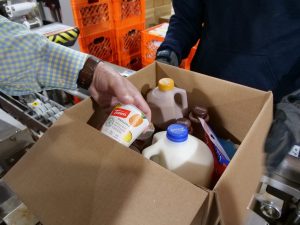
There is a process that we follow if we are notified of an alleged violation, and this process ensures that we have the facts before we make any decisions.
The first step, of course, is that a complaint or concern comes to our attention. One potential violation we periodically hear about is a retail outlet selling milk for lower than board-established minimum prices.
We employ an investigator who then checks out the situation either by making a visit to the store or calling and speaking with a manager.
Often the situation is one in which a new person has been employed and not educated on how to check the new prices online each month and make whatever changes are necessary.
The Milk Marketing Law requires that producers are paid minimum amounts per hundredweight according to prices established by the federal orders.
Pennsylvania producers are also paid an over-order premium for milk that is produced, processed and sold in the commonwealth.
In addition, producers are required to be paid each month for their milk. Occasionally we find out that a dealer has underpaid producers, and this is usually due to an accounting error or a misinterpretation of something published at the federal level. Our auditors communicate with the dealer and the situation is rectified.
Most of you probably know of the Dean Foods bankruptcy and the situation that evolved for both producers and cooperatives with which Dean did business.
In that case, those who sold to Dean were not paid, so the provisions of the Milk Producers’ Security Act were put into place.
Dean paid independent producers, and the Milk Marketing Board’s claims against legally required bonds were processed and used to pay cooperatives. This is just one instance in which Pennsylvania’s milk regulatory process was beneficial to the industry, especially compared to other states that don’t have such safeguards.
Sometimes out-of-state businesses that are new to Pennsylvania are not fully aware of minimum pricing requirements and may make mistakes as a result. In those cases, we contact them, provide information, and the companies will follow the regulations from that point forward with no further actions required on our part.
We also have very specific requirements for how and when dealers and others submit paperwork to board staff.
If these requirements are not met, the offending party will be contacted and provided an opportunity to fix the problem. Some examples are new and renewal license applications, weigher/sampler license applications and monthly milk dealer accounting reports.
What happens if our attempts to work with companies are not successful? The law provides us with a mechanism to issue citations to companies that violate regulations. A citation is administered and sent by our staff attorney following a legal referral from a staff member.
The citation lists the actual violation and notifies the company of a date for a hearing before the board. Our staff attorney will provide the company with an opportunity to communicate about the violation and will often offer several ways that the situation can be resolved to avoid a board hearing.
The most serious violations or those from a repeat offender can result in loss of license or monetary penalties.
Board staff work diligently to help our dealers and other licensees avoid situations that may lead to legal referrals and citations. As previously stated, these situations are often the result of a simple accounting error, personnel change or other unintentional mistake. We strive to avoid punitive actions whenever possible.
PMMB is always available to respond to questions and concerns. I can be reached at 717-210-8244 or by email at chardbarge@pa.gov.























